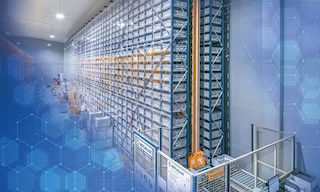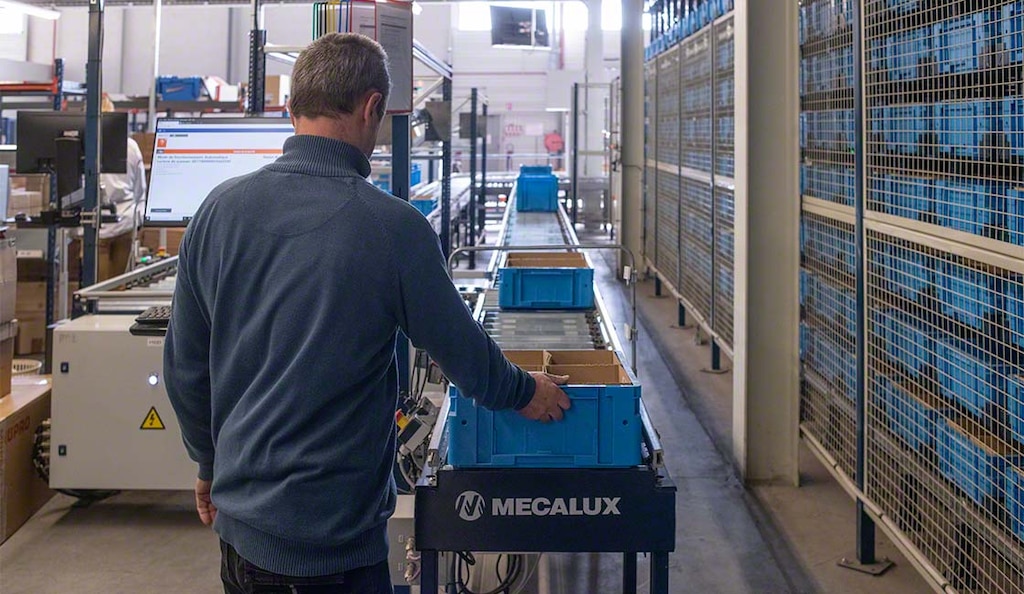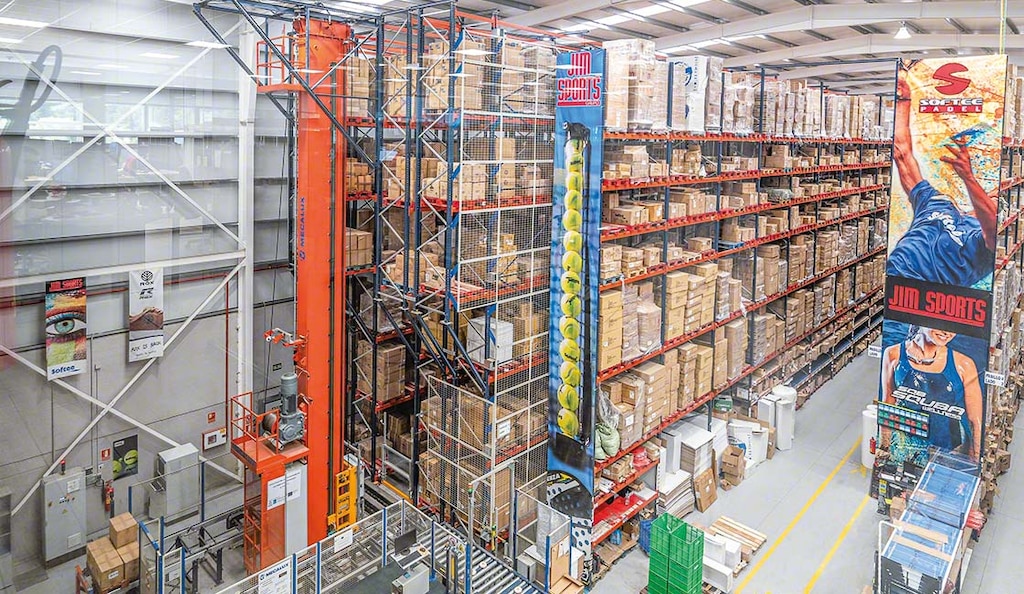
Small business automation: improving your warehouse efficiency
Small business automation refers to the implementation of automated technologies and systems to enhance efficiency and reduce logistics costs in modest-sized companies. Automation has numerous benefits, and it can significantly impact multiple business areas for a small organization, especially logistics.
What is small business automation, and what are its advantages?
Although often associated with large corporations, warehouse task automation has become an essential catalyst for growth in small and medium-sized enterprises. Automation offers tangible benefits that go beyond mere logistics process optimization. From smart inventory management to streamlined picking processes, new technologies not only save time and resources but also create opportunities for sustainable growth in small organizations.
What types of industries can be automated?
Small business automation can benefit a wide variety of companies in different sectors. Below are several industries that can leverage warehouse process automation for small businesses:
Food. Small food industry companies can implement automated systems to monitor their perishable inventory, manage expiration dates, and ensure batch traceability.
Ecommerce. Ecommerce retailers can take advantage of automation to manage orders and integrate with carriers.
Manufacturing. Small manufacturers can automate product transport between the production plant and the warehouse. They can also digitalize communication between these two spaces to control stock and organize raw material replenishment.
Logistics providers. Modest-sized distribution and logistics companies can use automation to optimize delivery routes, efficiently manage vehicle fleets, and expedite loading and unloading.
Pharmaceutical. While automation enables the safe storage and handling of medicines, management systems ensure accuracy in batch monitoring, stock management, and order fulfillment.
Technology and electronics. Small businesses that manage technological products can capitalize on automation in component management, assembly, and shipment preparation.
To sum up, warehouse automation can be applied to a wide range of small businesses, regardless of sector. It improves operational efficiency, reduces costs, and makes inventory management more reliable.

What can be automated in a small business?
The level of small business automation you implement will hinge on factors such as your company’s logistics requirements, the technical characteristics of your products, the design of the various storage zones, and your putaway criteria. Depending on the nature of your organization, you can automate partially, integrating technological solutions in one or more areas. Conversely, you can opt for full automation, completely replacing manual goods management with automated processes.
With that in mind, these are the main logistics operations apt for small business automation:
- Storage. Automating product putaway and picking from racks is a standard practice in modest-sized companies. Automated storage and retrieval systems (AS/RS) — e.g., stacker cranes for pallets and mini-load systems — ensure efficient, reliable operations. These AS/RS are supervised by a warehouse management system (WMS), which guarantees greater productivity and more accurate inventory management.
- Internal transport. Pallet and box conveyors automatically move, accumulate, and distribute goods for small and medium-sized enterprises. In the case of manufacturers, conveyors can also streamline stock transport from the production lines to the storage area.
- Order picking and processing. Automation fosters goods-to-person picking. It makes sure that pickers are continuously supplied with merchandise at their pick stations. If you’re a small business with heightened picking activity in your warehouse, you can enhance the work of your operators by incorporating pick and place robots. These machines handle and sort products in situations involving repetitive tasks or considerable physical effort.
- Inventory and operational management. WMS software coordinates everything happening in your facility. For example, it manages the movement of equipment, provides instructions to operators, and transfers information relating to product receiving and shipping. Digital warehouse control guarantees the traceability of all operations. The WMS monitors each product’s journey through the different areas, facilitating compliance with quality standards.

Advantages of warehouse automation for small businesses
Automating processes in the facilities of modest-sized companies offers a host of benefits, including improved operational efficiency and market competitiveness. According to the study 35 + Amazing Robotics Industry Statistics to Understand in 2023 by Strategic Market Research, in April 2023, there were 3.5 million industrial robots. These are some of the pros and cons to consider if you’re planning to automate your warehouse:
- Increased productivity. Automation speeds up processes in the facilities of small enterprises. It slashes the time needed for tasks such as goods receipt, order picking, and inventory management.
- Error reduction. Automated systems minimize mistakes associated with manual product handling, making all operations more accurate.
- Space optimization. Automation lets you maximize your available warehouse space, expanding capacity in smaller areas.
- Enhanced safety. Robotic solutions lower the risk of accidents. For instance, they avoid excessive forklift traffic in the facility.
- Agile picking. Robots and AS/RS can expedite order picking dramatically. As a result, your small business will be able to meet tighter delivery deadlines and improve customer satisfaction.
- Better adaptability to demand. Automation allows you to pivot quickly to changes in market demand, operating with greater flexibility.
- Effective inventory management. Digitalization gives you more reliable, real-time stock control, preventing overstocking and stockouts.
Logistics process automation improves internal efficiency for small businesses in addition to raising their market competitiveness. Moreover, it enables them to offer higher-quality and more proactive service.
Maximizing small business efficiency with warehouse automation solutions
In today’s fast-paced business world, the ability to adapt and evolve is vital for the continuous success of small and medium-sized enterprises. Against this backdrop, warehouse automation will help you respond to current demands while laying the foundation for sustainable future growth. Incorporating automation into your small business will put you on a somewhat more level playing field with large corporations. At the same time, it will provide you with a unique advantage: the ability to adjust rapidly to shifts in market demand.
Thinking about automating workflows in the facility of your small or medium-sized business? If so, it’s advisable to rely on experts who can guide you through the process and propose the best solution. At Interlake Mecalux, we have extensive experience in setting up automated warehouses. Be sure to contact us. We’ll help you find the most suitable storage system for your supply chain.
